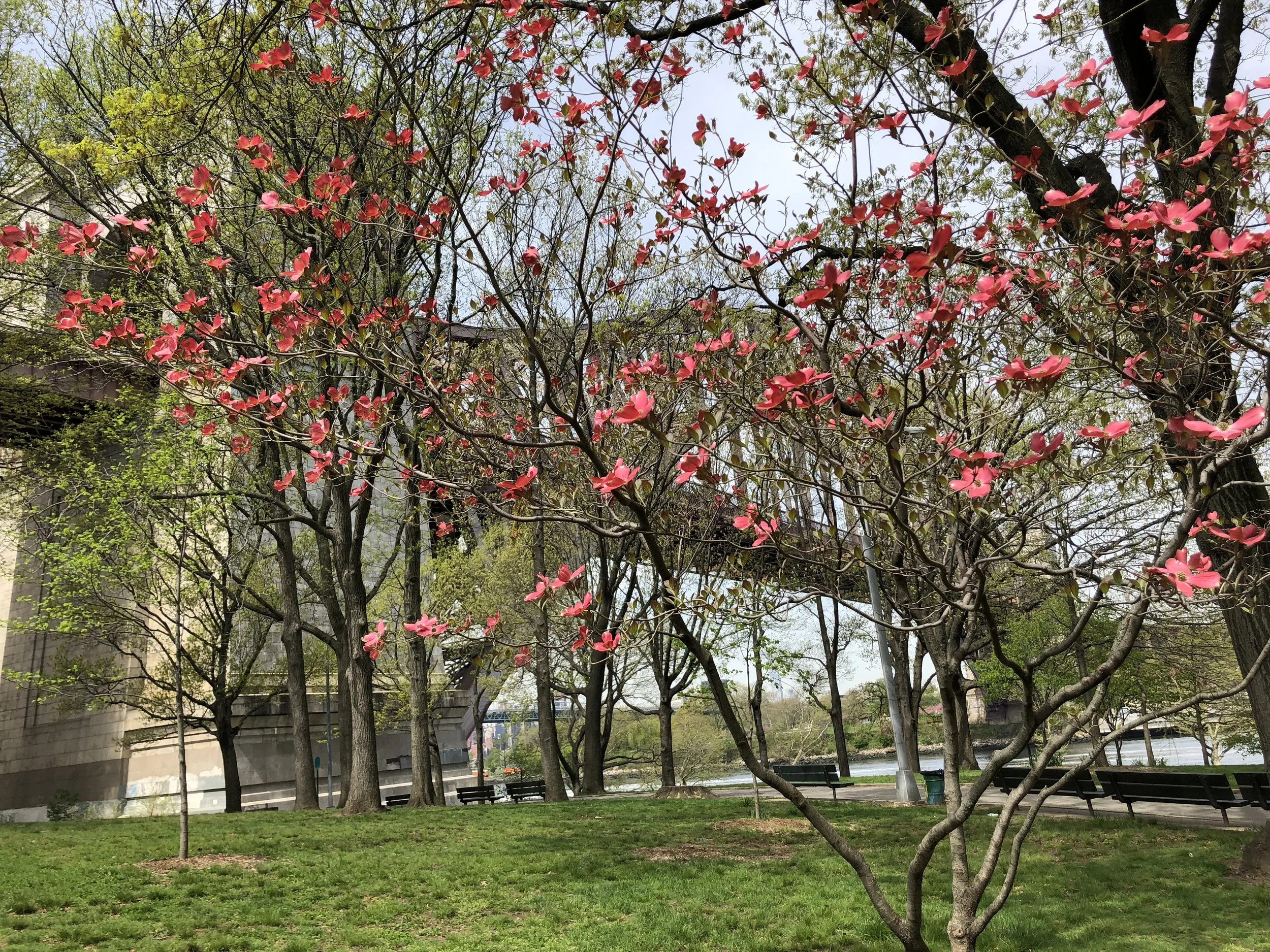REVIEW: Michael Tilson Thomas, Yuja Wang, and New World Symphony Shine
Above: Yuja Wang, Michael Tilson Thomas, and the New World Symphony. Photo © 2019 Richard Termine
May 2, 2019
By Brian Taylor
Michael Tilson Thomas, conducting the New World Symphony he co-founded in 1987, and celebrated pianist Yuja Wang brought their respective Perspectives artist-in-residencies to a culmination in a convergence of multi-generational talent at Carnegie Hall on Wednesday evening. A New York premiere by Pulitzer prize-winning composer Julia Wolfe gives America’s premiere teaching orchestra something to sink their teeth into, Wang wrangles Sergei Prokofiev’s intractable Fifth Piano Concerto, and Hector Berlioz’s warhorse Symphonie fantastique proves that the next generation of musicians is not merely waiting in the wings — they are already rising to the occasion.
Photo © 2019 Richard Termine
Co-commissioned by the New World Symphony and part of Carnegie Hall’s 125 Commissions Project, Julia Wolfe’s Fountain of Youth takes its subject from the spring of legend associated with Ponce de León, while also paying tribute to the youthful vigor of the orchestra, as well as that of the Maestro himself, who seems impossibly younger than his years. Wolfe, who co-founded the experimental group Bang on a Can, has penned an adventurous tone poem that keeps the audience on the edges of their seats. The first thing we hear is startling: an acidic mass of static reminiscent of Krzysztof Penderecki’s avant-garde string effects. Throughout the 20 minute-long piece, Wolfe’s sonic palette draws from richly orchestrated triadic chords and white noise alike.
The body of Fountain of Youth unfolds like the post-minimalism of John Adams, slow motion exploration of a single harmonic sonority, like a video camera peering around in a tunnel of sound. Trombones slide around to and fro, pouring out of a churning river of rapidly bowing strings. A jagged underpinning of percussion includes primitive washboards and a pseudo-psychodelic rock beat. An elusive, distant middle section gradually builds to a shocking, visceral conclusion. Wofle creates sounds so viscerally grotesque they’re beautiful.
Prokofiev’s Piano Concerto No. 5 in G Major, Op. 55, dates from 1931 and finds the Russian composer at the height of an identity crisis. After many years abroad to mixed results, he was struggling to regain approval in his homeland. Pianists like Yuja Wang must not get a a lot of bang for their buck working up this spiky piece that comes at the audience with thorns. It’s rarely programmed. Not because isn’t full of showy virtuosity — it’s tailor-made for Wang’s facile athleticism — or jangling around with a plethora of melodies.
Wang’s boundless skills at getting around the keyboard are on full display in this Olympic trapeze act. The first three movements are frenetic. Prokofiev wrote the piece as a vehicle for himself to play and pulled out every pianistic antic in his grab bag. It’s an onslaught of witty irony jutting up and down the instrument. The orchestra does not sit idly by, however. When Wang’s flying fingers jump, the young virtuosos of the New World Symphony reply, “How high?”
Photo © 2019 Richard Termine
These young stars not only nailed Prokofiev’s colorful orchestral scoring, but under the clear, committed tutelage of MTT, made logical sense of it. The ravishing fourth movement, a slow movement marked Larghetto, is the emotional heart of the work, and the NWS strings molded their silvery sheen into long arced, focused phrases. The concluding Vivo brims with anxiety, but the exceptional woodwinds bring an ironic calm to their moments in the sun. Few professional orchestras boast winds who play with such cohesion of character and intonation. The last cadence arrives as a surprise, a G Major chord with a smiling wink. This is a concerto perfectly suited to Yuja Wang’s talents, and benefits from her go-for-broke tempos. The same could be said for her encore, a jazzy romp introduced by its composer — Tilson Thomas himself.
The orchestra shines in Berlioz's Symphonie fantastique. The quintessential Romantic creation, this five movement work broke new ground in 1830. Berlioz took the direction in which Beethoven sent the symphony and ran with it, integrating the ideals of the new Romanticism by telling the story of a young artist experiencing lovesickness. Berlioz could not have imagined a more compelling performance of this dazzling showpiece for orchestra.
Photo © 2019 Richard Termine
The woodwinds and brass are given lots to do, and the New World players brought tonal beauty and heartfelt expression to the crucial appearances of the unifying idée fixe — which represents Berlioz’s protagonist. The second movement, "A Ball," anticipates the ballet music of Tchaikovsky, and the violins shaped the waltzing melodies with vibrant yearning. The third movement, “Scene in the Country,” was a chance to relish the sound of America’s next crop of first rate symphonic players.
The bassoon section took their turn center stage in the rousing "March to the Scaffold.” The solo clarinet's brief restatement of the idée fixe was rudely interrupted by the fall of the guillotine, the fat, mocking major chords that follow were bellicose in the low brass. In the colorful finale, "Dream of a Witches' Sabbath," an ominous Dies Irae conveys a sense of doom, and the brass and percussion sizzles.
MTT’s New World Symphony has confidence and zest. No orchestra in America plays with more incisive rhythm, or fearlessness, or sense of purpose.
***








